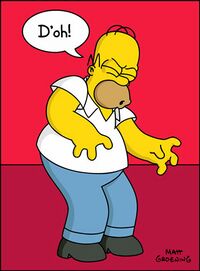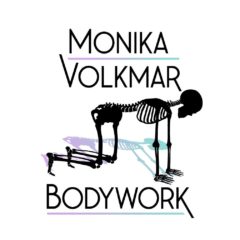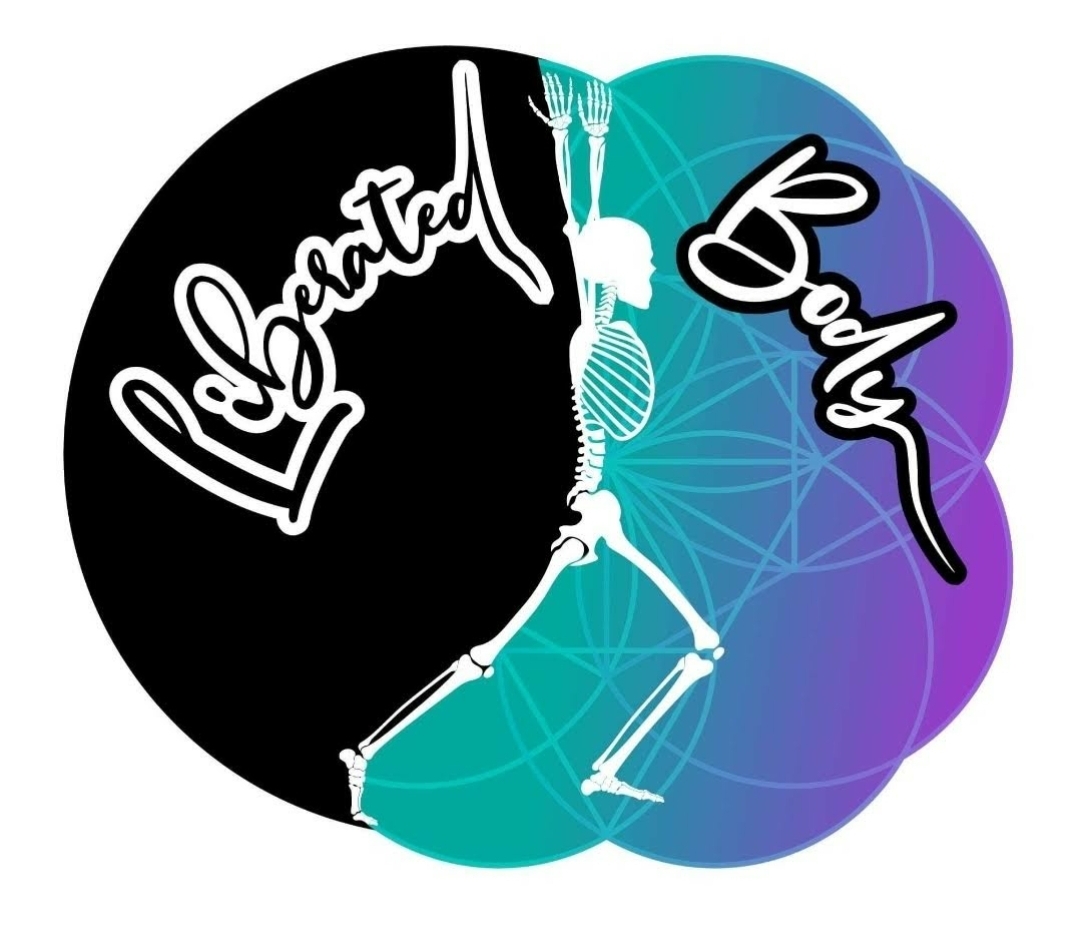Fitness goals…The only good reason to have them is so you can stop having them.
Why not skip to the part where you just stop having goals?
Trust me. I’m a fitness professional 😉

This January, while everyone else is making resolutions, doing some version of a “kickstart-being-healthy-in-30-days-fitness-challenge”, would you like to join me in my Anti-Fitness Challenge?
Free yourself from the expectation of getting fitter and healthier. And discover the joy of honest movement. Free from “shoulds”, and “have-tos”, and “I’m-bad-if-I-don’ts”.
Reclaim permission to move without needing it to be intense exercise. Without needing to get something out of it.
Reclaim movement free from utilitarian function.
What would that feel like?
Welcome to anti-fitness livin’.
But without fitness goals won’t I become an unhealthy slob?
I’m not saying become a blob.
I’m inviting you to become more aware of your unconscious motives for exercise.
Having goals for your body can be useful in that they can set a direction. But what if you’re going the wrong direction? Are your fitness goals ones that You came to on your own, that are meaningful for You?
I’d much rather people have no clear goal at all than to have blindly adopted a goal that was someone elses’ idea.
Not goals you picked up from Mom. Or your evil ballet teacher. Or the bullies you thought were your friends in highschool. (Oops I’m talking about myself…)
Remember that the person pursuing the goal has more value than the goal itself. In the process of working towards the goal, the goal setter ought to exist. The goal shouldn’t stifle your existence.
It’s quite possible that most of your fitness goals got accidentally chosen for you, without you knowing it. Think about that…
Can you think of one goal you had/have for your body that came uniquely from You? Or has every goal you’ve had for what your body should be able to do, feel like, and look like come from an external source?
Your parents. Friends. Social media influencers who really do care about you living your best life (as long as you’re wearing their clothing line…).
Everyone’s got “fitness shoulds” they believe and preach. But shoulds and goals are not the same.
You should be X% bodyfat to be healthy.
You should work on mobility with this or that trendy stretching routine.
You should build muscle mass, especially your butt.
And you should wear a particular shoe (or no shoes) while doing it all…
How do you know these “should-ers” aren’t just propagating the fitness goals (i.e. shoulds) THEY originally bought into, which gave them a sense of control by manipulating one teeny variable in the ever-increasing entropy of existence?
If you’ve ever felt out of control because you gained 5 pounds and can’t bear to face the world out of fear of being judged as a failure, you know exactly what I mean.
This January 2022… Just. Stop. Fitness. Goals.
And discover who is this You that keeps making fitness goals?
Screw that “new year new you” crap. This year, remember You. The original You. Untarnished by the opinions of others.
Everyone is trying to convince everyone else to care about the things they care about, which might not actually be the thing You care about.
And then we feel bad for not caring about the things that we feel we’re expected to care about. And then we feel worse for failing to to accomplish goals we don’t actually care about. Ironic, isn’t it?
Just admit you don’t care.
In the words of my spirit animal, Richard Feynman:
“You have no responsibility to live up to what other people think you want to accomplish. The others’ expectation of you is their mistake, not your failing.”

What if every fitness goal we’ve ever had is based on a learned moral judgement that isn’t true? “If X is right and Y is wrong, I need to get to X because I don’t want to look wrong”. That says nothing about whether it is healthy for you.
But what if trying to be “right” and “healthy” is making you unhealthy and sad?
What if my “healthy” decision is actually your “wrong” decision? What if my “wrong” decision is the best thing YOUcould ever do for yourself?
For example, I read a book recently that advised to eat a lot more vegetables (among other things). I already eat a lot of vegetables. But I started believing I needed more instead of asking if it was true. It kind of hurt my guts, but I kept going with it. I got more and more obsessive and orthorexic. I started avoiding social situations in which I couldn’t follow the author’s specific (unreasonable) guidelines, because I bought into his version of “healthy”.
But for someone else, getting a little more interested in eating vegetables might be the switch they need.
Can you see how we just can’t compare ourselves with eachother?
No one can tell you what is best for you. We have to figure out our unique version of health, fitness, and whatever else, or we can get swept away in the flood of shoulds and expectations and comparison.
What hidden motives lurk in your background?
The first point in the Anti-Fitness challenge is to consider that every fitness goal you think You came up with on your own might actually something you picked up (like that particular virus that shall not be named).
The second point is to look into whether your fitness goals actually have nothing to do with fitness, but you’re telling yourself, and everyone else that they are?
That’s called confabulation. And we’re all doing it.
I’ll illlustrate this fitness-confabulation-theory using myself as an example (I’ve been an expert confabulator all my life).
Until age 25, I don’t think I made one single self-aware, self-sovereign choice for what to do with my body. (I’m still not sure I’m able to think for myself, but I’m working on it.)
Here’s a short list of the things I did and the hidden motives I had for them:
When I was a wee lass, my parents put me into gymanstics, soccer, swimming, dance. None of it was my original choice. In the end I stuck with dance, but not because I loved it. I wanted to quit when I was 14. I stuck with it because I felt guilty about being a quitter. (that said, I do appreciate and feel very fortunate for being exposed to a variety of movement forms. Thanks, for realz, mom and dad.)
Then, in highscool, I felt pressure to join the curling team because on of my best friends was the skip (look it up) and I wanted to be worthy to be her friend. And I feared that any time I spent not around her was time she would forget about me and make other friends, and I would be all alone… Ahh teenage angst. So I pretended to like curling, but it wasn’t MY self-sovereign choice. It was a choice based on fear of abandonment and moulding mysefling into who I thought she wanted me to be..
I picked up guitar (a thing you do with your body, even if not “exercise”) because I wanted to look cool. People who play guitar are cool, right? It wasn’t MY choice. I picked up the belief that being cool is important. But I actually found the lessons stressful because I didn’t deep down want to play guitar. The body positioning also flared up shoulder pain. So why would I keep doing something stressful and painful? Looking cool is important. Obviously.
I joined the weightlifting club in grade 9 because I felt I had something to prove. I wanted to be “different”. Turns out weightlifting is actually pretty boring and no one cares.
I joined the cross-country running club because there were some popular people in the club and I thought I could be popular, too, by association (but I didn’t inherently enjoy runnning. I’m no Helen Hall…).
Later in university, I started running again to prevent myself from getting fat. Running what I used to was to make up for all the crap I was eating, to calm my anxiety about being “too fat” to be a dancer.
Then I started high intensity interval training (HIIT) when running didn’t “work”, because I read in a book that “women should do treadmill sprints, not lift weights, to achieve their best physique, because squats and deadlifts build too much unsightly muscle bulk”. The book was written by a man… So I adopted some random man’s expectation for what I should look like and do with my body. And then I pulled my hamstring. Doh.

After university, after quitting dance, I started powerlifting because I wanted to be perceived as someone powerful and capable of success to compensate for years of feeling weak, and “failing” at my dance career. It had nothing to do with “fitness”.
Then when I started learning about corrective exercise for pain, I naiively bought into everything I was told would “fix” my pain: You need to stabilize your core. You need stronger glutes. You need to stretch your hip flexors. I did it blindly and rationalized it was working (even though I still felt shitty). I became an advocate for neutral spine and glute activation drills, but in reality I was trying to find a sense of control.
Worse, I wanted to convince everyone else to care about being in control, too. Because that made me feel more in control when everyone adhered to my definition of control and life could be predictable and stable.
Kind of like being in prison…
Guilt. Worthiness. Needing to look a particular way… Do any of those sound like joyful reasons to move?
Not ONE single thing on this list is something I did for ME, uninfluenced.
Not one thing was for the joy of movement. Or was linked to something that genuinely fulfilled me. It was all about meeting expectations. Control. Appearences.
This is NOT the kind of state one ought to be making goals from.
I don’t know about you, but I’m no longer comfortable making goals drenched in expectation.
Any goal set out of expectation or shame will eventually lead to duress. Injuries. Deep fatigue. Sadness and depression. A sense of being lost and confused…
And I am sharing this with you today because when I realized the extent to which I had given up my right to choose for my own body, and convinced myself so thoroughly that I even liked it that way, it came as a shock.
It felt… gross, to recognize that lack of self-respect. To realize that I couldn’t identify ONE thing I’d done with my body that was for Me, by Me.
How about you?
What’s your thing?
90s kids will remember this PSA:
By pure luck I found My thing with Anatomy in Motion.
The movement practice I developed based on AiM isn’t something I do to please anyone. Not as an exhibition to post about on social media. Not to control my weight. I do it because it makes my body feel good. It satisfies my soul’s curiosity for learning about movement and anatomy. I am genuinely a nerd about it.
In fact, in my early days of exploring AiM people said that what I’m doing is weird, and that I should stop.
One colleague actually went out of his way to sit me down privately and tell me that people don’t understand what I’m doing and it is off-putting so I should consider just doing what everyone else is doing in the gym, and stop doing this AiM stuff so that I’ll fit in.
And he claimed to be saying this because HE CARED ABOUT ME.
I don’t know what he actually cared about, but if he truly cared about Me– the being who wants to explore and learn- he wouldn’t have tried to place his goal of fitting in with everyone else onto me.
So you know what I said? Thank you and fuck that.
THAT’S when I knew I had found something that was mine to explore for Me.
And I’m not sharing this because I think YOU should do AiM, or care about moving efficiently. I’m not trying to sell you on any movement form or value system or eating more vegetables.
I’m trying to sell you on YOU.
That’s what the Anti-Fitness Challenge is all about.
How would you move if it wasn’t about exercise or fitness or how your body looks?
What fitness goals are leftover when you drop all expectations?
Do you have a hunch about what that might look like?
I once asked this question to a client and she started crying. The idea that movement could be something enjoyable, non-utlitarian, wasn’t something she’d felt since she was a kid. Me too…
I think rediscovering the joy of movement is something we are deep down longing for permission to do, but there’s so much fear that moving for the sake of moving is a waste of time. Why would you move if there was no external goal? If there’s nothing to get out of it?
Maybe because you love yourself. How about that part?
On that note, if it vibes with you, I invite you to my life’s mission: A commitment to an awareness of when I feel an outward expectation for what I should do with my body- How it “should” look, move, be. And just say… Fuck that.
Pause, and before going for that run, picking up that weight, kicking up into that handstand, ask:
Is this Meaningful?
Is this Enjoyable?
Is this Sustainable?
Is this Healthy?
And make a self-empowered choice for Me, by Me.
Just some thoughts today 🙂
The Anti-Fitness Challenge might be something I formally put together. But mostly, its for me. Because i need it. If you’d like to do it with me, shoot me an email and maybe I’ll put some structure to it. Could be fun? (probably not…)


This is something I desperately needed to read!!! I’m jumped on every fad diet and spent a fortune on gym memberships, fitness gadgets, etc. You name it, I’ve tried it, never to have changed my appearance or meet any goals.
If anything, I’ve become more depressed, more anxious, less “healthy” and overall stuck.
I tend to set a word for the year each January. Last year was my word was self-care. I focused on taking care of me because I’m a people-pleaser and care more about others than myself.
I want to dive deep into this anti-fitness challenge. Maybe my word for 2022 can be, discovery. Discover who I am, what I like, who deserves space in my life.
Would love more on this!!!!
Hi Kate 🙂 THanks for reading and taking a moment to share your thoughts. Isn’t it funny how counterintuitive it is that the more we focus on health it can stress us out and make us less healthy? But then NOT focusing on being healthy feels so wrong. So where’s that sweet spot in the middle? If you figure it out let me know 😉 Love the idea of the word of the year. My word for 2022 is HONESTY.
Thank you for this Monika. You describe a frightening journey and yet, the common experience of many, and paritucularly most women in one way or another.
Thanks for reading Bonnie 🙂 It can be a frightening journey. But I think of the years I lived unaware of the fear I was experiencing and now that frightens me more to go back, then to journey forward.